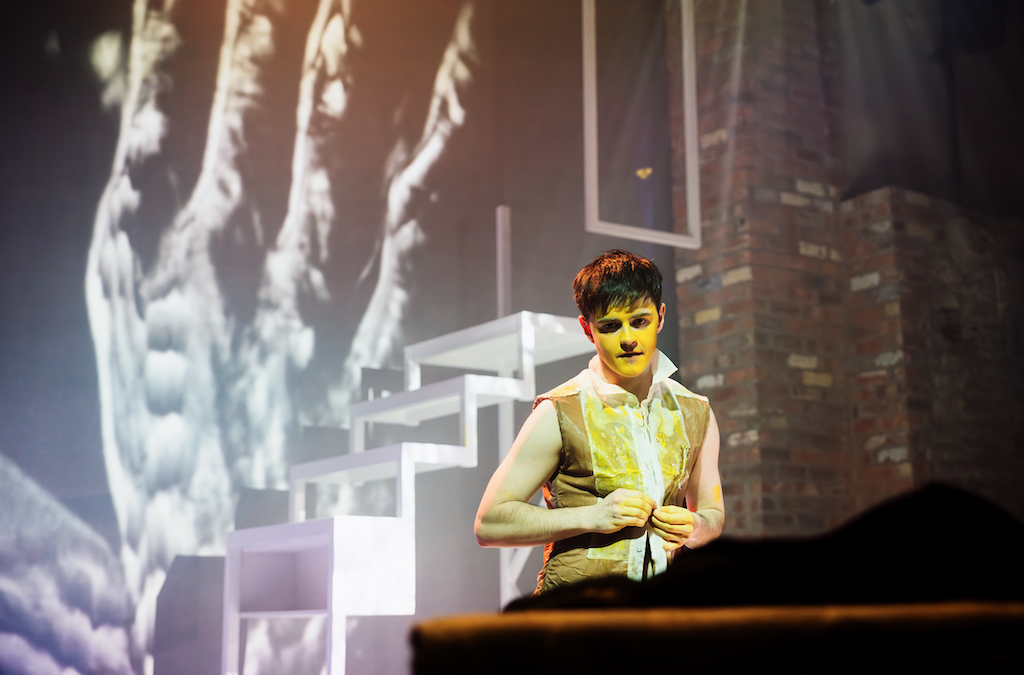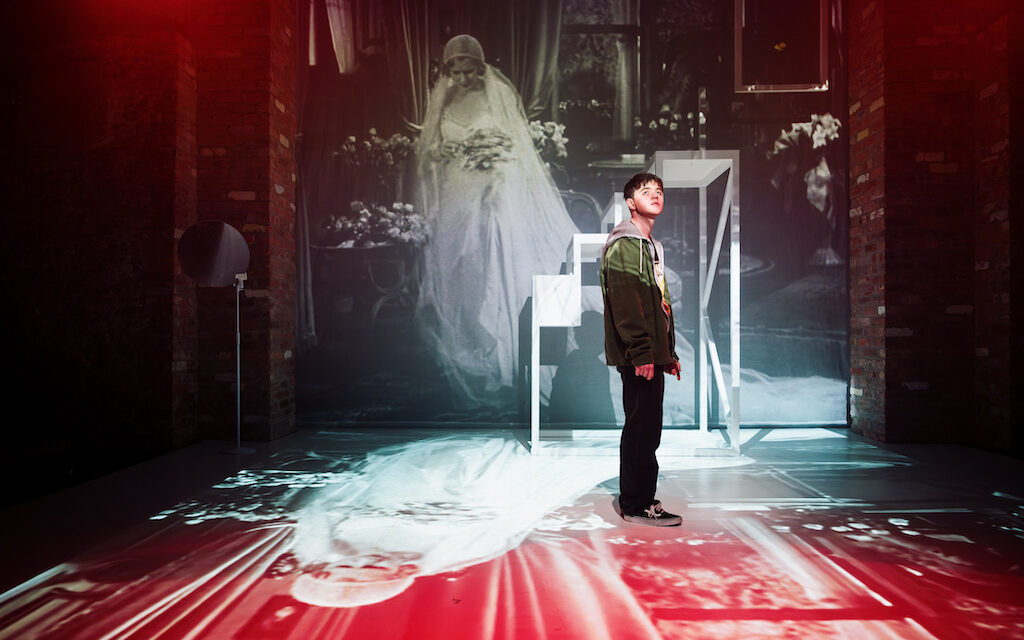
22 February – 9 March
Dear Young Monster is a deeply felt account of a trans person’s experiences during some of the earlier stages of transition. Writer and performer Pete MacHale has explained that it originated as an ‘angry, silly version of itself in a sticky, queer basement bar’. He has taken that nascent material and transformed it into a play that deserves to be seen by the widest audience possible. Dear Young Monster is certainly not silly, and any anger that remains serves to give urgency and force to a compelling narrative. In its new form it is technically sophisticated, with effective use made of Dee Dixon’s video design and Roly Botha’s music and sound. The set is simple, featuring mainly a flight of steps leading up to a window in which there is a solitary flower. Director Sammy Glover has made dynamic use of the space, and throughout the show’s seventy minutes there is energy and drive.
From the moment he steps on to the stage MacHale conveys the kind of spritely, warm personality that quickly engenders empathy. It becomes clear that this is not going to be a piece of trans-activist polemic, but very much one individual’s heartfelt story. We learn that he has long had a passion for horror movies, an enthusiasm he shares with his friend Mia. His favourite character is Frankenstein’s monster, as portrayed by Boris Karloff. It might seem brave to the point of recklessness for a trans person to draw comparisons between himself and a frightening monster, but MacHale adroitly employs the Frankenstein narrative as a metaphor for society’s fear and marginalisation of those who differ from traditional norms. Last night’s audience included some who have shared many of his experiences, so his rueful comment that being required to present ID in a bar is ‘the nemesis of transsexuals’ brought whoops of recognition.
MacHale frequently uses movement to convey key moments, vividly depicting a sense of suffocating entombment when seeking to break out of his former identity. He has an acute eye for the gender-specific details of social situations, such as the way men hold beer glasses on a night out. He revisits his early attempts to tune in to the rhythm and pulse of male behaviour with self-deprecatory humour, bringing to life his earlier, clumsier self. He also skilfully portrays the other characters in his tale, including his anxious mother and the supportive Mia.
Dear Young Monster features some dark episodes, such as a terrifying encounter with transphobic lads at a party. Less physically damaging but perhaps just as distressing is a fraught conversation with his mother where her use of the adjective ‘irreparable’ casts some doubt on just how deep her understanding of his need to transition might be. However, this show ends on a very positive note. That flight of steps represents the challenging journey MacHale has taken, and when he finally reaches the top there is a palpable sense of personal fulfilment and joy. For those who have not shared his kind of experience, Dear Young Monster offers an enlightening and engaging insight into what it is to be a trans person. It also reveals MacHale to be a very good writer and performer, so it will be interesting to see what he has to offer next. Highly recommended.
★★★★☆ Mike Whitton, 29 February 2024
Photo credit: Alex Brenner


